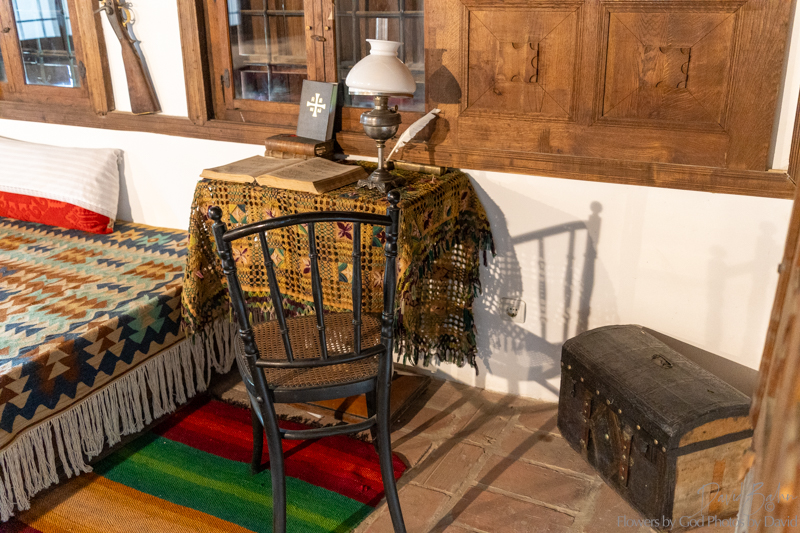After the uproar ceased, Paul sent for the disciples, and after encouraging them, he said farewell and departed for Macedonia. 2 When he had gone through those regions and had given them much encouragement, he came to Greece. 3 There he spent three months, and when a plot was made against him by the Jews as he was about to set sail for Syria, he decided to return through Macedonia. 4 Sopater the Berean, son of Pyrrhus, accompanied him; and of the Thessalonians, Aristarchus and Secundus; and Gaius of Derbe, and Timothy; and the Asians, Tychicus and Trophimus. 5 These went on ahead and were waiting for us at Troas, 6 but we sailed away from Philippi after the days of Unleavened Bread, and in five days we came to them at Troas, where we stayed for seven days.
7 On the first day of the week, when we were gathered together to break bread, Paul talked with them, intending to depart on the next day, and he prolonged his speech until midnight. 8 There were many lamps in the upper room where we were gathered. 9 And a young man named Eutychus, sitting at the window, sank into a deep sleep as Paul talked still longer. And being overcome by sleep, he fell down from the third story and was taken up dead. 10 But Paul went down and bent over him, and taking him in his arms, said, “Do not be alarmed, for his life is in him.” 11 And when Paul had gone up and had broken bread and eaten, he conversed with them a long while, until daybreak, and so departed. 12 And they took the youth away alive, and were not a little comforted.
The 11th Commandment, I was told many years ago (for preachers, mind you), is “Thou shalt not bore.” In other words you need to keep the congregation’s interest as much as possible and not put them to sleep by endlessly trite oratory. The degree to which I have kept that commandment may be debatable. One elder in a congregation I served many years ago, raised his arm high in front of his face, looking obviously at his watch while I was preaching. I paid him no mind. I will admit, however, that I have heard some pretty boring sermons in my time. Sad to say.
Eutychus – the young man who fell out of the third story window when Paul preached late into the night – may have had another reason for falling asleep. The room was filled with many lamps. These no doubt filled the room with their fumes, and Eutychus must have been more susceptible to these fumes. And he fell asleep and fell to what people thought was his death. Fortunately for him, however, Paul saved the night and, announcing he was not dead. “His life is still in him.”
A dairy farmer in northern Indiana regularly fell asleep in church when I was serving as a seminary field worker there. The early morning milking chores, combined with the toasty warmth of the church building conspired with the not very spellbinding sermon delivered by the pastor there. He fell asleep every Sunday. I vowed I would keep him awake when I got the chance to preach there. Didn’t succeed. He nodded off even for my spellbinding illustration that Sunday.
The hymn speaks to us about falling asleep – or better – awakening from spiritual slumber, to the awareness of God’s presence, blessings, and commandments.
Wake, awake, for night is flying,”
The watchmen on the heights are crying;
“Awake, Jerusalem, arise!”
Midnight hears the welcome voices
And at the thrilling cry rejoices;
“Oh, where are ye, ye virgins wise?
The Bridegroom comes, awake!
Your lamps with gladness take!
Allelujah!
With bridal care
Yourselves prepare
To meet the Bridegroom, who is near.”
Falling asleep in church isn’t the most grave danger. I’ve done it a couple times in years gone by. Nor is falling out the window – embarrassing as that might be. The greatest danger is being asleep to the word of God, trading the truth of God’s word for the comfort of the pillow, and remaining unaware of God’s presence in our lives – in a church service, or during a Tuesday afternoon commute.









